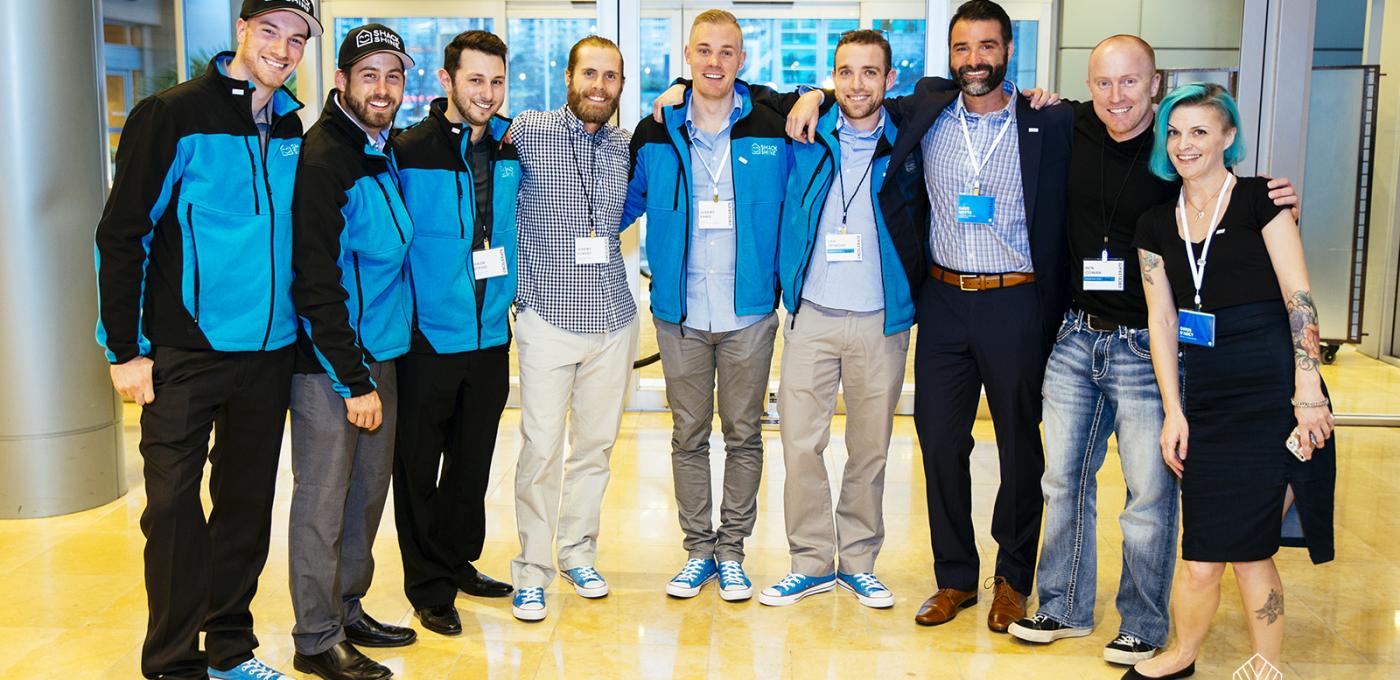
Forbes: Millennials Sneer at Franchising. Here’s Why They Shouldn’t
This article was contributed to Forbes by Brian Scudamore
Very little keeps me up at night, but tonight I’m going crazy trying to solve a problem with no clear answer. Ten years ago, when we went through hyper-growth with our first brand, 1-800-GOT-JUNK?, our ideal franchise partners were young, hungry, and relatively inexperienced. They were passionate about building something they could call their own and were highly motivated to live the “American Dream.”
Today, we refer to this same demographic as “Millennials.” This is a group that typically doesn’t like the concept of franchising. They see it as a formulaic, top-down model lacking in freedom and creativity.
I’m lying awake because my biggest challenge (and ironically, my biggest opportunity for growth) is finding business partners from within this sector of the population. The problem? When we mention franchising to this generation, their eyes glaze over. When they hear the F-word, they’re done listening.
Buzzwords and the (New) Beast
How do I show Millennials that owning a franchise doesn’t have to be like buying a Subway and consigning your entrepreneurial spirit to a sandwich assembly line? In fact, when I chose franchising as my model for growth over 20 years ago, it was because I believed I had found the ultimate entrepreneurial growth machine.
It’s understandable that franchising is overlooked as an option these days with buzzwords like “app”, “tech” and “startup” topping current discussions on business ownership – and they’re exciting options. All the talk about incubators, crowdsourcing, high risks and potentially higher rewards. Would-be entrepreneurs want their own big idea and the glamour that comes with it.
But the early days of any business are stressful and unpredictable. When I dropped out of college to start my own business more than 20 years ago I found myself working 80-hour weeks facing hurdle upon hurdle: a revolving door of the wrong people, holding my own paychecks until I could cash them, and being told that my junk business would never amount to anything more than a tiny, local summer operation.
We often hear that 75 to 90% of startups fail and 95% of businesses older than five years shut their doors. What if there was an easier way to enter the world of entrepreneurship? I’ve already shown my cards here: I think there is. Imagine a type of startup crossover – blending certain aspects of franchising with the creativity and freedom of entrepreneurship – a totally new, powerful beast.
The Good and the Bad
I’ll be the first to say that for creative, educated self-starters franchising can be a horrible option. You’ll often be confronted with bureaucracy, top-down corporate leadership, burdensome legal commitments and – in the worst cases – assembly-line style work.
The head-start that comes with owning a franchise also comes at a price. For example, becoming a franchisee with 1-800-GOT-JUNK? can require an investment of nearly $125,000. Some of our newer brands do have a much lower barrier to entry, around the $80,000 mark, but there’s no doubt that pooling this capital can be a challenge and requires resourcefulness.
Rather than insisting on rote processes and conformity, franchising – done right – draws on the initiative and creativity of your business partners. Although we offer systems and rules, building a thriving company depends on tapping into and nurturing the same kinds of entrepreneurial skills critical to any startup.
Redefining the “F” Word
Two years ago – I found some millennials that ‘got it’. Brent Sharpless, and three other friends who were all recent college grads, reunited in NYC to explore opportunities to start their own company. It wasn’t because they needed the work – each of them had great jobs – two as lawyers, one as an investment advisor and the other as an insurance broker.
They hoped running a side business together would translate to the kind of collaboration, flexibility and fulfillment missing in an ordinary day job. So they went all in – only it wasn’t on the latest tech startup or Kickstarter-funded project. They bought a house-painting franchise from my company and hired a GM to run daily operations.
I found Brent because he interned with us during his MBA. He spent time on the inside – he understood our culture and was attracted to our model. But how do I tell my story to other Millennials if they can’t get past the word “franchise”?
Perhaps what it really needs is a rebrand to convey the hybrid of franchising and entrepreneurship we’ve created. I see franchise partners as we call them today, as ‘entrypreneurs’, because we offer an entry point for aspiring entrepreneurs who otherwise wouldn’t have access to the expertise or capital to launch a business venture.
I understand that franchising doesn’t entail the same risk-reward ratio as a startup, and I’m not saying it’s for everybody. But it can be an entrypoint for people who would otherwise be shut out of the entrepreneurial equation. For Millennials who crave freedom and opportunity it might be time to reconsider the “F” word.






